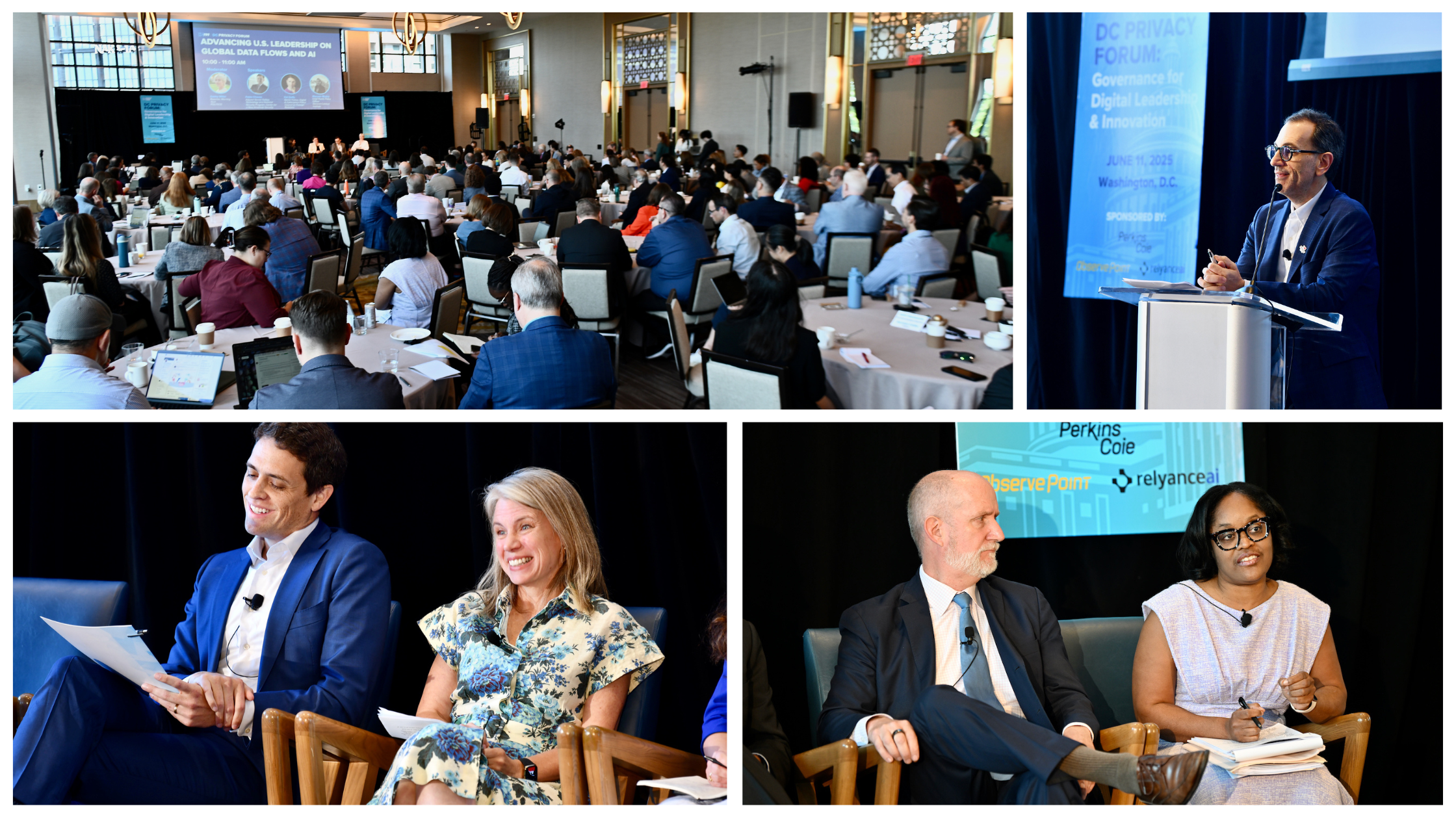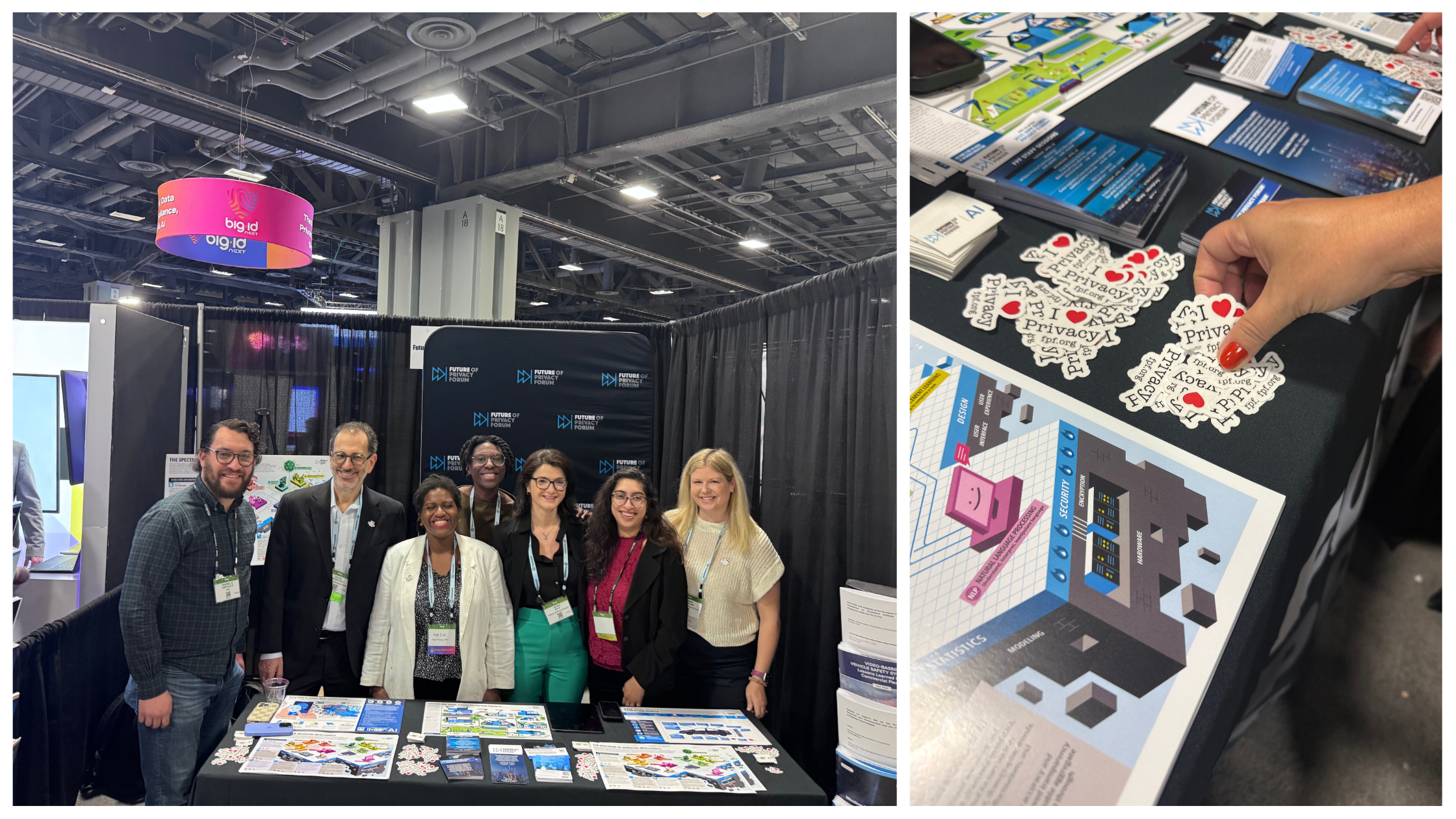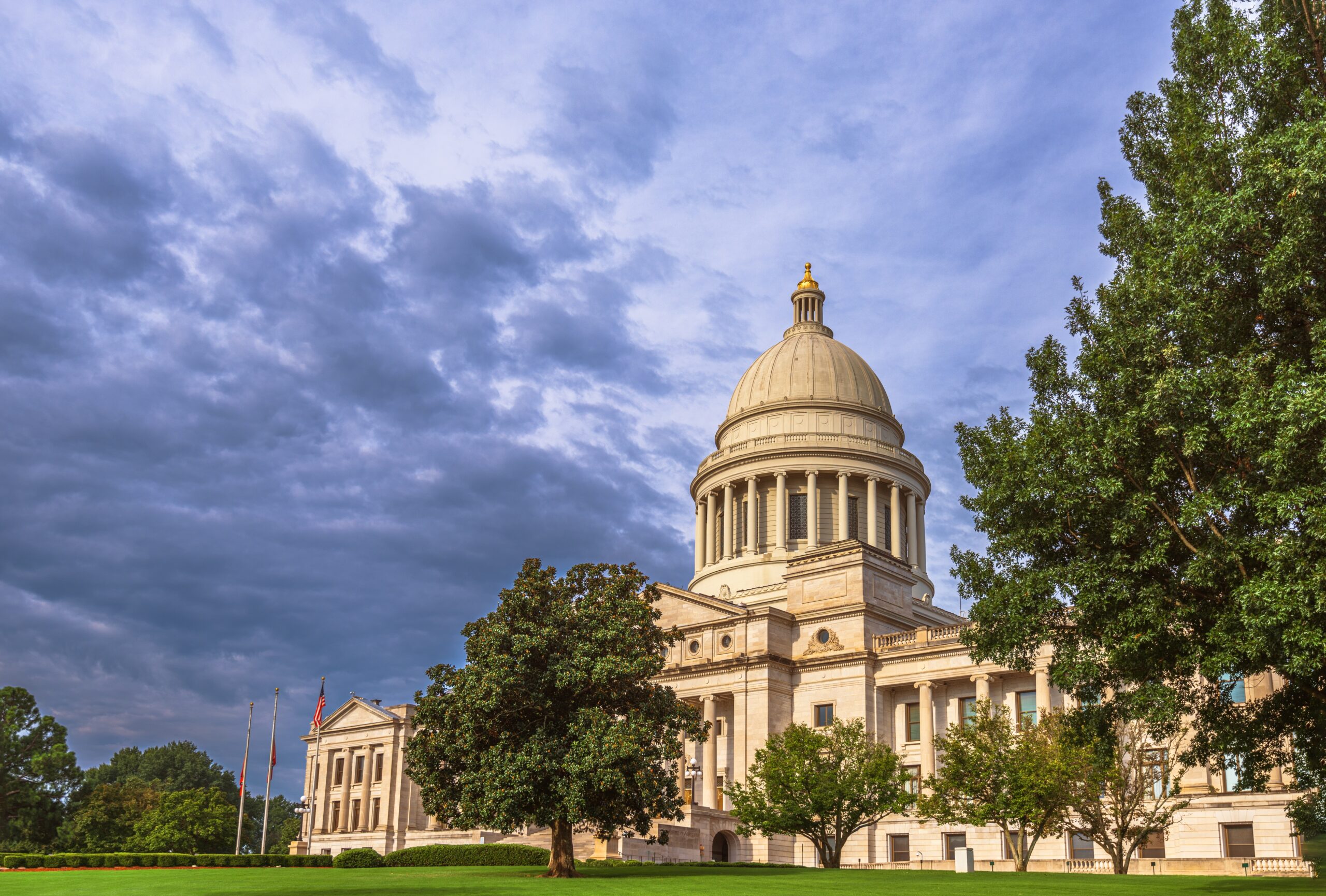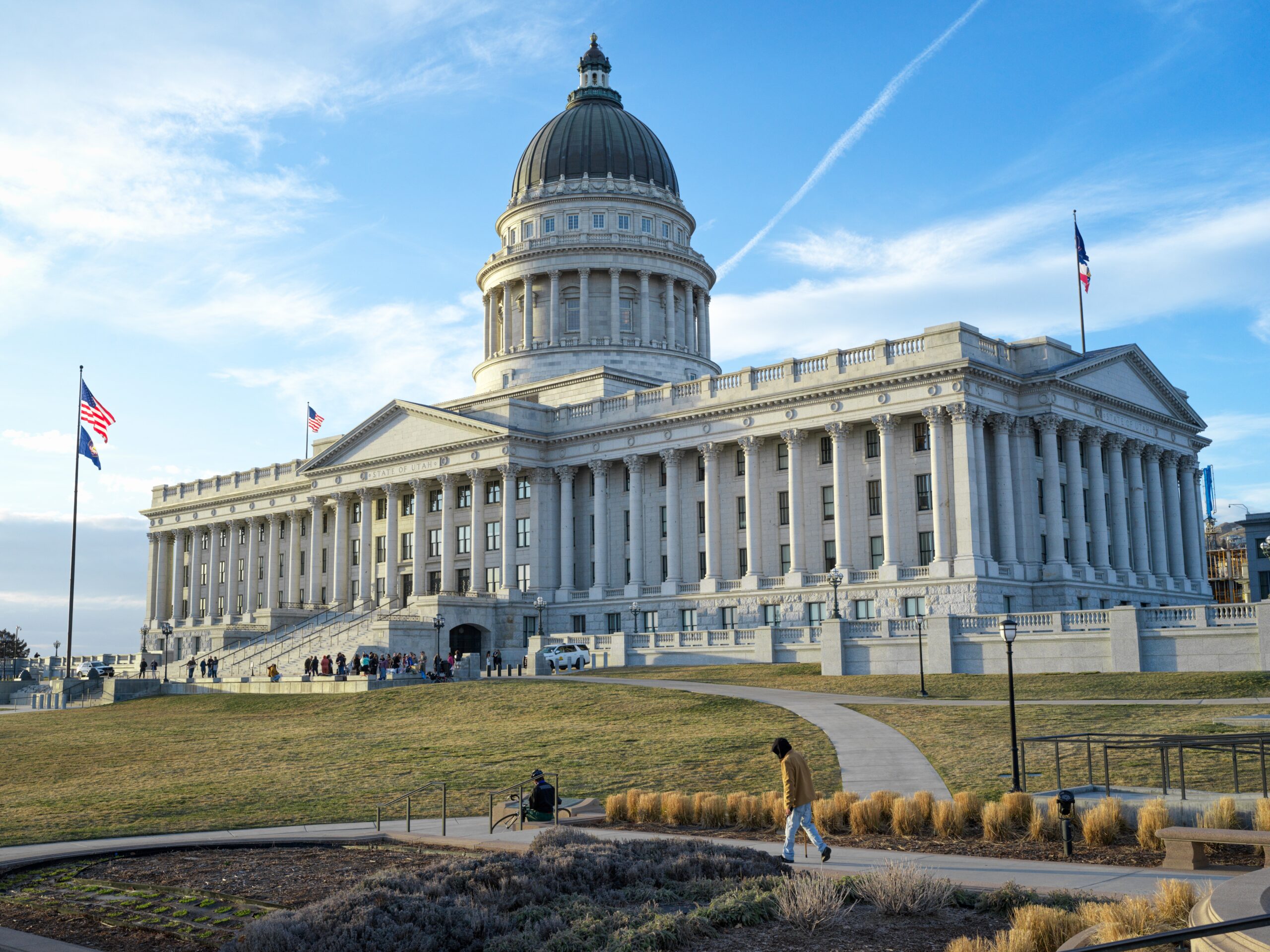The Connecticut Data Privacy Act Gets an Overhaul (Again)
Co-Authored by Gia Kim, FPF U.S. Policy Intern On June 25, Governor Ned Lamont signed SB 1295, amending the Connecticut Data Privacy Act (CTDPA). True to its namesake as the “Land of Steady Habits,” Connecticut is developing the habit of amending the CTDPA. Connecticut has long been ahead of the curve, especially when it comes […]
Annual DC Privacy Forum: Convening Top Voices in Governance in the Digital Age
FPF hosted its second annual DC Privacy Forum: Governance for Digital Leadership and Innovation on Wednesday, June 11. Staying true to the theme, this year’s forum convened key government, civil society, academic, and corporate privacy leaders for a day of critical discussions on privacy and AI policy. Gathering an audience of over 250 leaders from […]
FPF Unveils Paper on State Data Minimization Trends
Today, the Future of Privacy Forum (FPF) published a new paper—Data Minimization’s Substantive Turn: Key Questions & Operational Challenges Posed by New State Privacy Legislation. Data minimization is a bedrock principle of privacy and data protection law, with origins in the Fair Information Practice Principles (FIPPs) and the Privacy Act of 1974. At a high […]
Vermont and Nebraska: Diverging Experiments in State Age-Appropriate Design Codes
In May 2025, Nebraska and Vermont passed Age-Appropriate Design Code Acts (AADCs), continuing the bipartisan trend of states advancing protections for youth online. While these new bills arrived within the same week and share both a common name and general purpose, their scope, applicability, and substance take two very different approaches to a common goal: […]
FPF Experts Take The Stage at the 2025 IAPP Global Privacy Summit
By FPF Communications Intern Celeste Valentino Earlier this month, FPF participated at the IAPP’s annual Global Privacy Summit (GPS) at the Convention Center in Washington, D.C. The Summit convened top privacy professionals for a week of expert workshops, engaging panel discussions, and exciting networking opportunities on issues ranging from understanding U.S. state and global privacy […]
Amendments to the Montana Consumer Data Privacy Act Bring Big Changes to Big Sky Country
On May 8, Montana Governor Gianforte signed SB 297, amending the Montana Consumer Data Privacy Act (MCDPA). This amendment was sponsored by Senator Zolnikov, who also championed the underlying law’s enactment in 2023. Much has changed in the state privacy law landscape since the MCDPA was first enacted, and SB 297 incorporates elements of further […]
Little Rock, Minor Rights: Arkansas Leads with COPPA 2.0-Inspired Law
With thanks to Daniel Hales and Keir Lamont for their contributions. Shortly before the close of its 2025 session, the Arkansas legislature passed HB 1717, the Arkansas Children and Teens’ Online Privacy Protection Act, with unanimous votes. As the name suggests, Arkansas modeled this legislation after Senator Markey’s federal “COPPA 2.0” proposal, which passed the […]
Chatbots in Check: Utah’s Latest AI Legislation
With the close of Utah’s short legislative session, the Beehive State is once again an early mover in U.S. tech policy. In March, Governor Cox signed several bills related to the governance of generative Artificial Intelligence systems into law. Among them, SB 332 and SB 226 amend Utah’s 2024 Artificial Intelligence Policy Act (AIPA) while […]
Twelve Privacy Investments for Your Company for a Stronger 2025
FPF has put together a list of Twelve Privacy Investments for Your Company for a Stronger 2025 that reflects on new perspectives on the work that privacy teams do at their organizations. We hope there is something here that’s useful where you work, and we’d love to hear other ideas and feedback. Privacy Investments for Your […]
FPF’s Year in Review 2024
With contributions from Judy Wang, Communications Intern 2024 was a landmark year for the Future of Privacy Forum, as we continued to grow our privacy leadership through research and analysis, domestic and global meetings, expert testimony, and more – all while commemorating our 15th anniversary. Expanding our AI Footprint While 2023 was the year of […]










